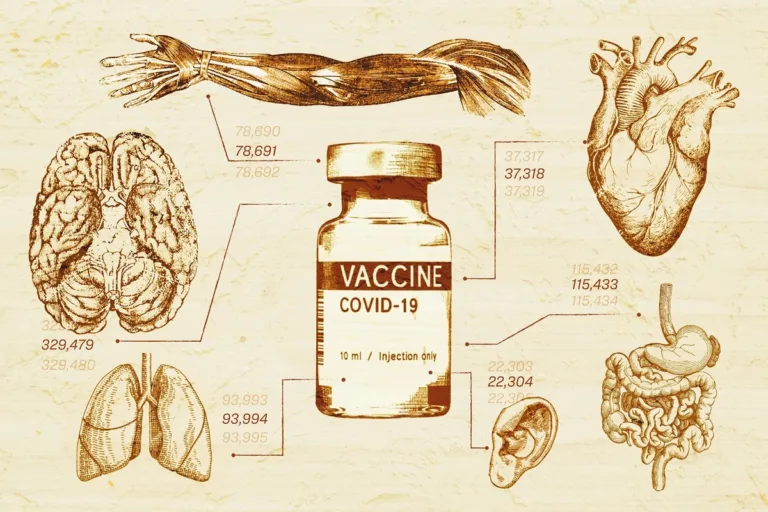When it comes to good medicine, I love innovation. I also love progress, both in the worlds of science, and when it comes to my patients. Nothing is more rewarding than witnessing patients as they heal, transform and grow into stronger, healthier and more vibrant versions of themselves. Fortunately, in my work as an integrative doctor, I have the great privilege of seeing these positive changes take shape, which is one of the many things that’s so rewarding about what I do every day. Over the years, on both a personal and professional level, I’ve grown increasingly interested in all the things we can do to slow the aging process and to enhance our ‘healthspans.’ Though fascinating discoveries come along almost every day, the innovations that rise to the top of my list are those which have the most positive effects, are well-tolerated by a vast majority and are relatively easy to integrate into one’s life.
Sometimes I come across cutting edge information about health therapies that just excites me. Though some may still be in the early stages research-wise, many of these new developments open our minds to – and remind us of – the power of everyday foods to promote our health. It’s truly “food as medicine” and ‘spermidine’ is a case in point.
If your first response is: “what the heck is that?” you’ve got plenty of company, even though it was first discovered by the inventor of the microscope, Antonie van Leeuwenhoek, way back in 1678. But only recently have scientists come to appreciate that this compound plays a valuable role in all sorts of key physiological processes, and the more we can boost our levels of it, likely the better our bodies are going to run. Here’s a topline on the good things that spermidine can do for you and how to extract the most possible benefit from it:
What’s in a name?
The reason for the eye-catching name is that van Leeuwenhoek first identified the spermidine compound when looking at a semen sample under the microscope. But, in fact, spermidine is produced by both men and women, in cells throughout the body, as well as ingested in foods that are naturally rich in the compound. The research is still in early days, but all indications are that as we age we should pay more attention to maintaining or even enhancing our spermidine levels, through diet and conceivably supplementation.
What’s it good for?
In a nutshell, potentially just about everything. Spermidine preserves mitochondrial function, exhibits anti-inflammatory properties, and prevents stem cell senescence by mimicking the beneficial effects of caloric restriction while limiting its detrimental effects.The research, admittedly most of it done on animals, suggests that spermidine is associated with better health and longer lifespans. We’re talking less inflammation, reduced cancer risk and more resilient neurological and cardiovascular systems. And this list is hardly exhaustive. Researchers have also found preliminary evidence that the compound may be involved in everything from better liver health to enhanced cognitive sharpness to better mood to a fuller head of hair! If you want a short-hand tag, think of spermidine as a candidate for an all-star anti-aging compound.
How can one compound do all that?
Over the past decade or so, a scientific narrative has taken shape that makes sense of many of the positive things that spermidine is linked with. At the bottom of that story is its role in helping the cells take out the trash. I’m talking about an absolutely necessary process called autophagy whereby cells get rid of used-up cellular machinery, jettisoning sputtering parts and creating space for new and more efficient replacements. Researchers now understand that the age-related decline of our trash removal capabilities is one of the primary drivers of the bad things that accompany aging. Over time, toxic junk builds up in the cells and we become more and more susceptible to the common age-related conditions like heart disease and stroke, neurological disorders like dementia and Parkinson’s, diabetes and cancer. So, it makes sense that researchers were able to pump up spermidine levels in a handful of different organisms and consequently extend their lifespans by boosting their capacity to “take out the trash.”
Spermidine to the rescue – for your brain, heart, immunity and more.
Some body processes are “dirtier” than others. First on the list is the generation of energy inside the mitochondria, the cell’s power plants. Old mitochondria spew out more “free radicals” which promote systemic inflammation, which we now understand drives most, possibly all, of our chronic “diseases of aging.” It stands to reason that when autophagy is helped along by a generous store of spermidine, it tamps down inflammation and helps protect those vulnerable chokepoints, the brain and the heart. Less inflammation means less risk that the fats in the system will go rancid and turn into sludgy, toxic plaque inside the vessels of both organs. Spermidine and related compounds may also keep our stress hormones and our immune system in check, which with age, have a tendency to go haywire and contribute to out-of-control inflammation. Scientists now speculate that spermidine may promote autophagy in an analogous way to caloric restriction which a library’s worth of research has shown extends the lifespan of a number of species, including our close relative, the apes.
Eating for your spermidine.
The good news here is that if you’re eating a healthy and varied diet, you’re getting a nice dose of spermidine and enjoying the benefits, whether you knew it or not. (I’m betting you didn’t.) Most plant-based foods contain spermidine but there are foods that score particularly high in that department – so it’s easy to ramp up your dose and boost the benefits. Among the foods that have more spermidine to give: grapefruit, chickpeas, peas, broccoli, spinach, green peppers, green tea, rice bran, cauliflower, pistachios and wheat germ. Some spermidine fans have noted that the compound is well represented in the veggie-heavy Mediterranean diets, which regularly test out well in the health research, and in diets consumed in the so-called Blue Zones, famous for the long lifespans of their inhabitants.
What about supplements?
I’m a big believer in getting valuable nutrients from your diet, as much as possible. Supplements certainly have their place, and often an excellent way to help fill in nutritional gaps when you’re falling short but we’re still in early stages with spermidine. The supplement research is truly in its infancy, so I always say start slow. I would also offer up some guidelines: If you’d like to experiment with spermidine supplements, work with an experienced integrative health care practitioner. Fortunately, negative side-effects are extremely rare, so I’m not unduly worried about them given that we’re talking about a compound most of us regularly consume in our diet. Still, always buy Spermidine (and all supplements) from a high-quality source and steer clear of the cheaper synthetic stuff, which may also be loaded with low-quality or even toxic ingredients and sourced from wheat germ.
BOTTOM LINE: Spermidine is a fascinating development and I love the potential it has, as it ticks off so many of boxes that I and many of my patients are looking for. It seems to be a true anti-aging nutrient, with the power to induce autophagy, tame inflammation, curb blood sugar, help prevent atherosclerosis, and may help slow the cognitive decline associated with aging. A nutrient that can help with all the things we worry about as we get older? That’s the dream of the Fountain of Youth, and it’s now becoming very close to reality, and we are here for it!
The post Anti-Aging with Spermidine – and How It Can Save Your Brain, Heart, and Youth appeared first on Frank Lipman MD.
This content was originally published here.



















